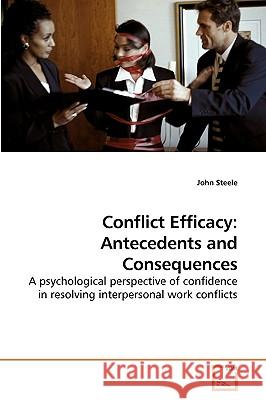Conflict Efficacy: Antecedents and Consequences » książka
Conflict Efficacy: Antecedents and Consequences
ISBN-13: 9783639217032 / Angielski / Miękka / 2009 / 180 str.
Interpersonal conflict is a fact of life. Conflict occurs even when group members do not have differences in goals, interests, or motivations. This is important because associated litigation costs exceed $5 billion annually, and thats not counting the second- and third-order consequences. Employees who consistently engage in conflict average almost 50 % higher health care costs. In addition, almost 90 % of firings, and about 50 % of quitting can be traced back to interpersonal work conflicts. Given the importance of this subject, I created two studies designed to help academics and practitioners better understand work conflict. Study 1 ascertained the effect of conflict definition on subsequent perceptions of conflict efficacy, frequency, intensity, and resolution preference. This allowed for a direct test of the effect of framing on perceptions and behavioral expectations. Study 2 assessed the unique contribution of conflict skills, mastery experience, vicarious experience, aversive physiological arousal, social persuasion, and frequency of negative interactions at work on both domain and task conflict efficacy, and subsequent positive work relationships.











